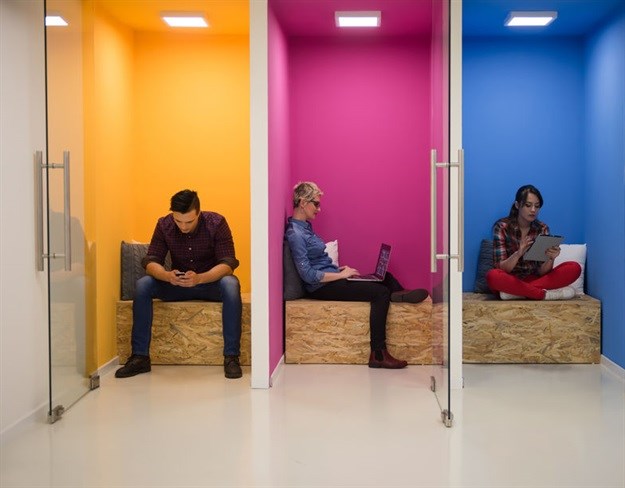
Top stories






More news














Richard Andrews, managing director of Inspiration Office, an Africa-wide office space and furniture consultancy said: "The hot desk concept is on the wane.
“Many more people have higher expectations for their working lives now want to be able to work in a more flexible way. Offices are adapting to meet that need. A bonus and a pat on the back is no longer enough to retain staff.”
Recent research by a UK social research charity, The Joseph Rowntree Foundation found that almost half the UK workforce would like the opportunity to work in a more flexible way. Job search firm, CareerBuilder's research revealed that 56% of employees who describe themselves as satisfied in their jobs cited work/life balance as a key factor.
Only 39% cited salary as the root of their job satisfaction.
Said Andrews: “Rather than setting up rows of traditional desks, each with their own power point and telephone, firms should consider shared spaces with work benches and social hubs where staff can work in a group or on their own in a more informal setting.”
Companies are seeing rewards from a more flexible approach. US retailer Best Buy adopted flexibility at its headquarters, resulting in a reduction in staff turnover of 45%.
“As technology develops to enable access to corporate systems, services and applications from any location at any time, employees are increasingly questioning the need to sit at a particular desk in a specific office at set times each day,“ Andrews noted.
The future of flexible working can be divided into three areas – space, location and time.
Flexible work spaces have the advantage that they don’t “belong” to any individual or team, meaning staff are less likely to get territorial over a particular place. They are also a great use of space for businesses looking to get the most value out of building costs, as they can be used in different ways - from a short meeting to an employee needing to focus on a particular project away from their team.
A clear-desk policy is a must when considering any of the above, ensuring that staff don’t reserve a certain seat or desk even when they’re away from an office.
Remote working is being embraced by many businesses to allow staff to work while travelling or offsite. Whether it’s letting staff head home after an external meeting to carry on working, or a more formal arrangement enabling workers to be at home for certain days per week, employees are increasingly demanding these opportunities. Enterprises that fail to offer flexible working policies and options will soon find they are unable to compete with larger companies when it comes to recruiting and retaining talent.
Flexi-time is the most radical of the three options, but it’s one already widely practised by micro-businesses, startups and entrepreneurs. However, we have yet to see a real shift to flexible hours among larger enterprises.
“Most companies expect their staff to work set days and hours, even if they happen to be working at home or from a hot desk. As offices decrease in both size and number of people on the premises at any time, as more of us choose to work remotely, so the need for staff to all be working the same days and times decreases,” said Andrews.
The most forward-thinking firms will start considering roles and functions in their organisation by employees working their own chosen hours - whether that’s compressed hours, weekend or night-time working - rather than those dictated by the business.
It might be that only one or two of these three options are feasible for your organisation at present, but for all firms it is worth assessing pilot programmes to try out the trio of different approaches.